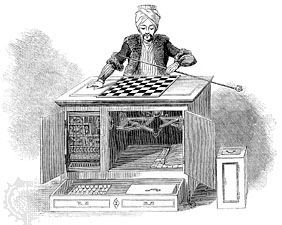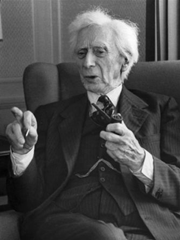 The number one cliché I hear about atheism is that lacking an objective / transcendent / absolute morality, everything is permitted, and surely we must be eating babies for breakfast. Religious people seem to be very insistent on this point, and all but attempt to push us to be immoral, telling us that we are being inconsistent if we aren’t, and that ours is a self-defeating position.
The number one cliché I hear about atheism is that lacking an objective / transcendent / absolute morality, everything is permitted, and surely we must be eating babies for breakfast. Religious people seem to be very insistent on this point, and all but attempt to push us to be immoral, telling us that we are being inconsistent if we aren’t, and that ours is a self-defeating position.
There are quite a few parts to deconstruct in those assertions. First, can the religious point(s) of view really claim objectivity, transcendence or absoluteness? Second, are the only games in town really religion and extreme relativism?
 Religious positions are often compared to a house of cards, meaning that they are elaborate but extremely fragile edifices that can be brought down by the merest gust of wind. They are, however, nothing but. A house of cards has more foundation than substance, whereas religion only has unfounded matter. Blow all you want, it won’t come down so easily. No, there are more apt metaphors to produce on the subject.
Religious positions are often compared to a house of cards, meaning that they are elaborate but extremely fragile edifices that can be brought down by the merest gust of wind. They are, however, nothing but. A house of cards has more foundation than substance, whereas religion only has unfounded matter. Blow all you want, it won’t come down so easily. No, there are more apt metaphors to produce on the subject. And by DNA I don’t mean deoxyribonucleic acid, I mean
And by DNA I don’t mean deoxyribonucleic acid, I mean  You see, if we don’t believe, it must be because we’re angry at God (we’re not: it doesn’t exist; we’re only angry at the people who are trying to impose arbitrary rules on us, on behalf of that imaginary entity). And the thing is, we’re not allowed to be angry. Because, of course, God is infinitely infinite, and we are worthless finite beings. So who are we to doubt His infallible plan that we cannot know?
You see, if we don’t believe, it must be because we’re angry at God (we’re not: it doesn’t exist; we’re only angry at the people who are trying to impose arbitrary rules on us, on behalf of that imaginary entity). And the thing is, we’re not allowed to be angry. Because, of course, God is infinitely infinite, and we are worthless finite beings. So who are we to doubt His infallible plan that we cannot know? Yet another response to
Yet another response to  This is an answer to
This is an answer to  If you’re out of the closet as an atheist, there is a number of canards that you will hear a lot. One of them is that Atheism requires more faith than religion.
If you’re out of the closet as an atheist, there is a number of canards that you will hear a lot. One of them is that Atheism requires more faith than religion. 
 That’s not me saying it, but
That’s not me saying it, but  A few days ago, French satirical journal Charlie Hebdo was fire-bombed. The decent part of French society condemned the terrorist attack and offered its help. Even Prime Minister François Fillon, who is politically diametrically opposed to the journal, had some nice words of support.
A few days ago, French satirical journal Charlie Hebdo was fire-bombed. The decent part of French society condemned the terrorist attack and offered its help. Even Prime Minister François Fillon, who is politically diametrically opposed to the journal, had some nice words of support.